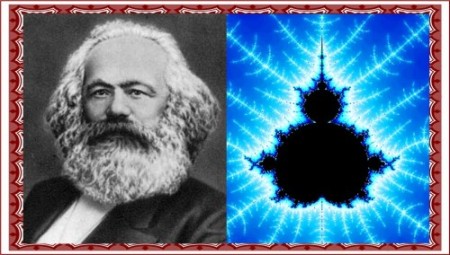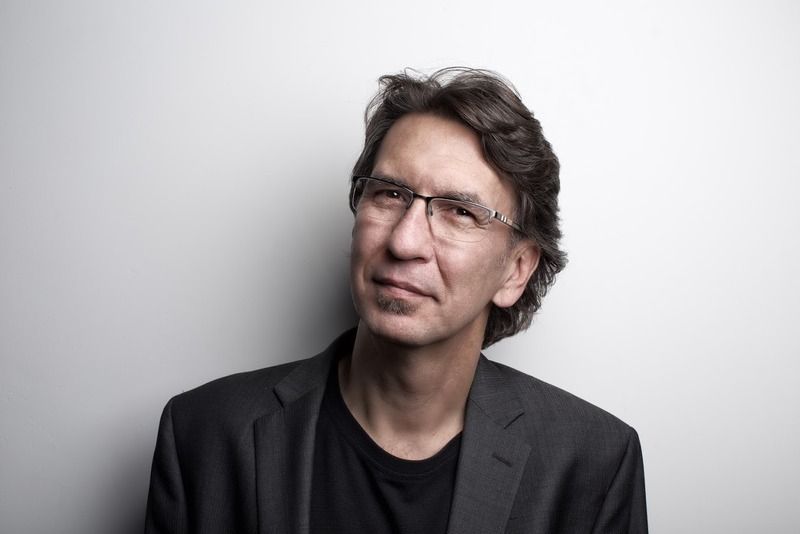Conflict, Process, and the Self in Organizations and Large Social Systems — Some Tentative Thoughts.
April 15, 2012

Recently, I had to write a paper for a political theory seminar. I was really uncomfortable with this prospect. I don’t have a lot of background or experience with area of study, but I needed a final class for the coursework phase of my PhD and I thought it could offer me insight into the processes taking place in very large organizations and other social systems.
Even though I’m struggling with some of the material, the class has been a real eye opener. In the recent paper, I tried to build a link between how large systems–in this case political systems–view conflict or group antagonism with the unspoken assumptions those systems have about human beings. Specifically, as a non-political theorist, I tried to compare the view of human beings Marx and Engels used when writing The Communist Manifesto, with the view held by more contemporary political thinkers–particularly those who relate to the power of dialogue to spark emergence.
While much of this may seem abstract and largely irrelevant to organizational thinking, I do believe there is a great deal here that can help us to approach conflict in a way that promotes creativity and innovation. Without going into the paper’s whole thesis, here is the key point I came up with:
Systems that try to ensure efficiency and harmony by removing all potential sources of conflict and disruption (as Marx and Engels attempted to do through abolishing private ownership of capital) actually undermine growth by not giving members the opportunity to engage in dialogue that can help to spark new paradigms that transcend the antagonistic thinking.
I know this is a lot of broad strokes. The paper does a better job of laying it all out. But the key to making this approach work is being able to back off from the traditional ideas that view human beings as fixed social and psychological beings. Instead we need to shift our talk and our thinking in a way that sees us as always in process–always emerging to something more inclusive and encompassing. This is what I’ve tried to express in the paper–and want to be able to those in positions of leadership.
So here is the challenge: since, as I believe, a new more dynamic understanding of human nature is critical if organizations and large social systems are going to confront the “wicked problems” and “super wicked problems” we face every day. How do we shift to a more “emergent-friendly” mindset when all the stressors cause us to yearn for a heroic leader who will just use some good old-fashioned “command and control” to shut the problem down and get us on to the next thing?
One last thing: So the paper. Overall, the instructor liked it a lot and thought I made a strong case. She did point out some shortfalls in my grasp of marxism and political theory–but that is to be expected. If anyone is interested, I posted a copy here–but I do so with a caveat: as I said, I’m not a seasoned political theorist so there are a few glitches. That said, I think it still makes a good case.
5 Comments
leave one →

Great post. I would simply say that these are developmental thoughts, but not tentative. The conclusions? Maybe. The idea of an emergent mindset is a good one. There is such a push in most of our work to be concrete rather than adaptive. Politicians get vociferously attacked for ‘changing their minds’, yet it is so healthy for us to consider that our ideas and problem-solving, particularly with wicked problems, be adaptive, evolutionary and creative. And creativity means being wrong and coming from something to something else. Thanks for sharing the ideas.
Cameron, thanks so much for your comments. Yeah, leadership has this tug of war going on between fixed vs. fluid worldviews. I’m particularly drawn to Uhl-Bien, Marion, & McKelvey’s Complexity Leadership Theory since, among several other strengths, it doesn’t force us to choose between either. Instead it favors a fluid shift between adaptive and administrative (fixed) approaches depending on the nature of that challenge at that time. I think this approach supports the overall developmental thrust of large systems and helps us make sense of what often seems chaotic.
(PS, great blog you got there. http://censemaking.com/ . I’m going to be watching it far more closely!)
Might I suggest that one way to view humans, their problem-solving abilities in large ecosystems, and their ability to use dialectic processes exists in the creative realm. One function of large Capitalist organizations is to tamp down that creative impulse – the Machine must only produce what it’s designed to produce – which hinders those creative processes that result in innovative understanding and problem solving. This can be observed in any corporation which has grown from garage startup to international conglomerate (ie- Microsoft, just for one example). It seems like even active cultivation of the creative is fraught with pitfalls – cost/risk determinations humans make intuitively preclude putting themselves out there in large ecosystems where everything works “good enough.”
I’d offer that creative cultivation combined with low risk and mutual benefits would lead to genuinely innovative solutions to wicked problems, leading to real growth potential. These large ecosystems, of course, find themselves overly risk-adverse themselves, creating difficulty in fostering this type of environment.
I’d be interested in your thoughts… Thanks for sharing this.
My observation is Emergence is reaching mainstream after many years of development under the radar. Most interesting to me are the developments in the worlds of education and high performing business. For whatever it’s worth I consider Now You See It by Cathy Davidson ( @cathyNdavidson on twitter ) a seminal work. The nuanced understanding bringing together insights from Brain Science. Digital Humanities and her work at @Hastac is in my view leading edge thinking from the very top of the highered pyramid.
Meanwhile much appreciation for sharing your thoughts and writing. Rare to see that kind of courage and transparency for those in the PhD game.
human nature is the result of the embodiment of a totally multidimensional consciousness that includes parallel and past lives, intimate connection with earth, galaxy, and universal energies and this consciousness is apprehended via processes of refinement of awareness …
pass that on to your prof 🙂